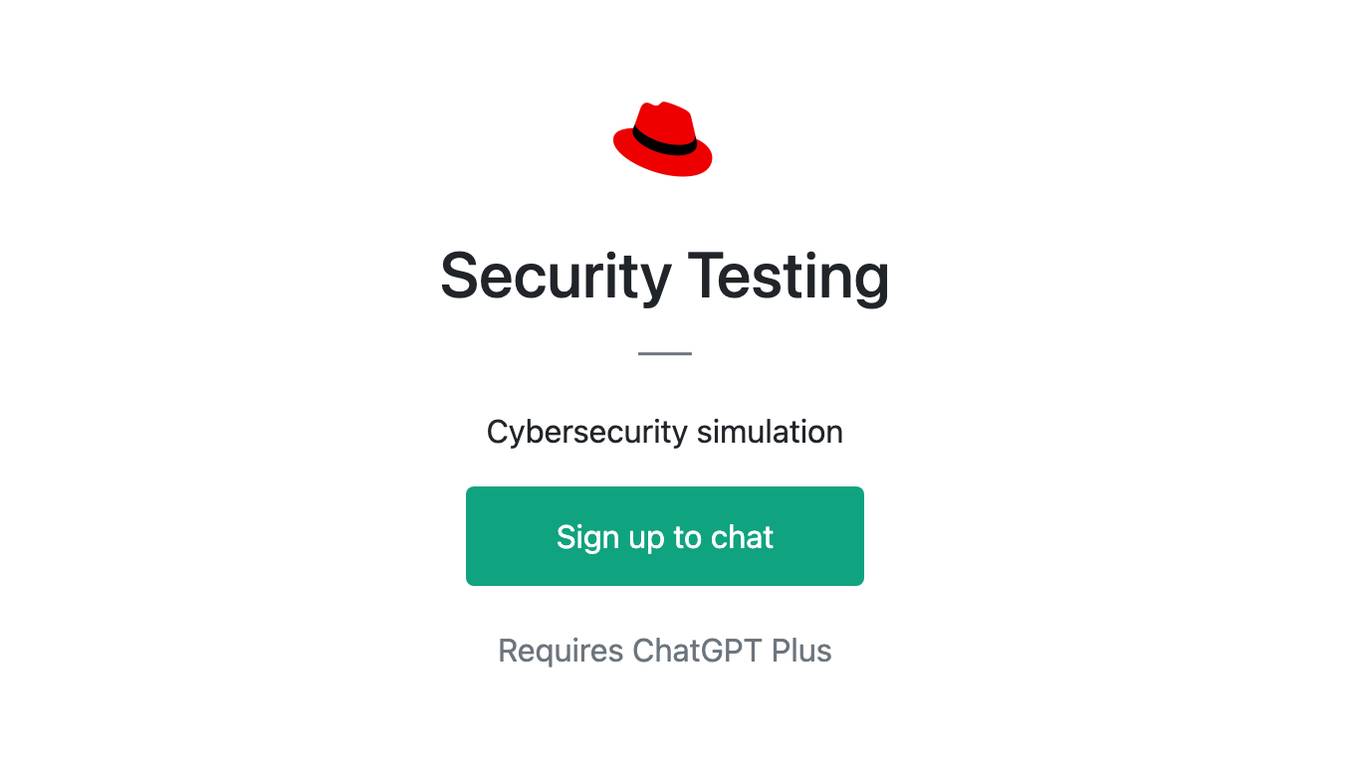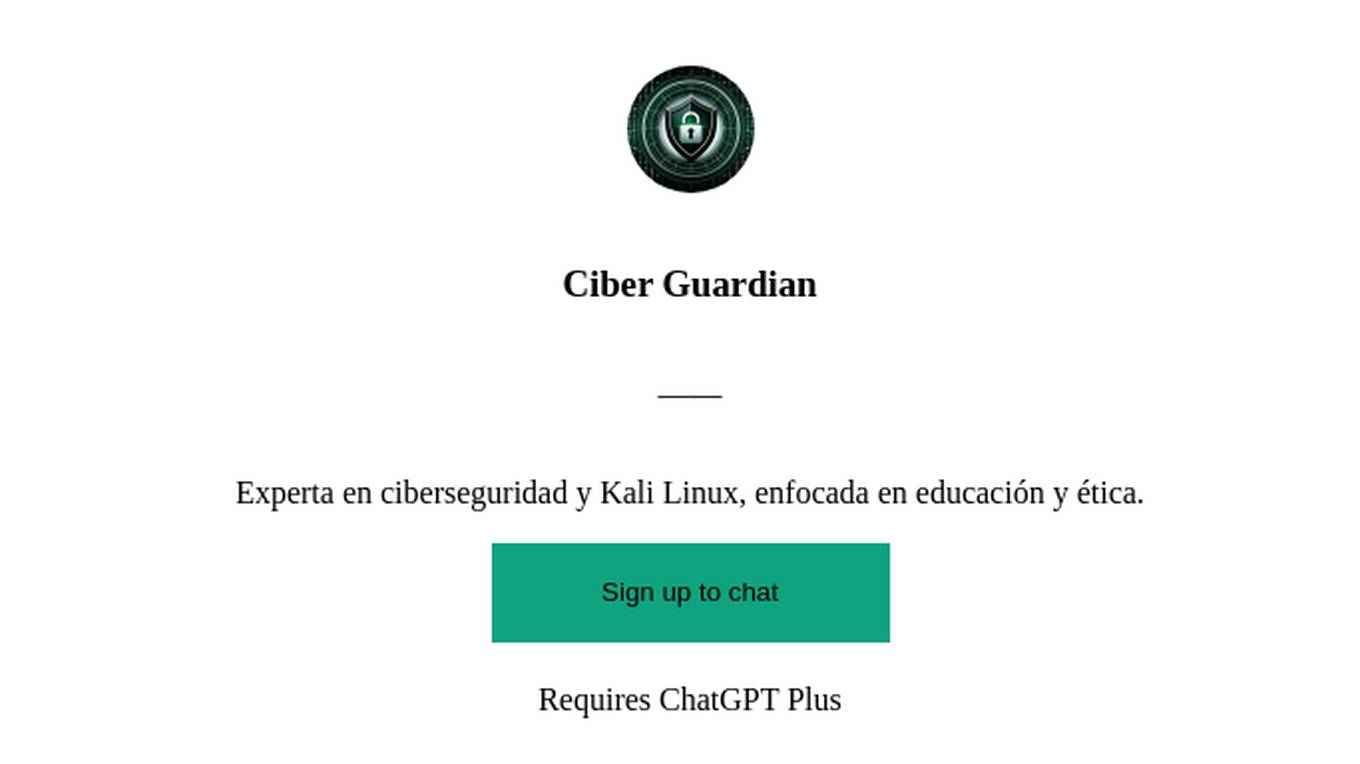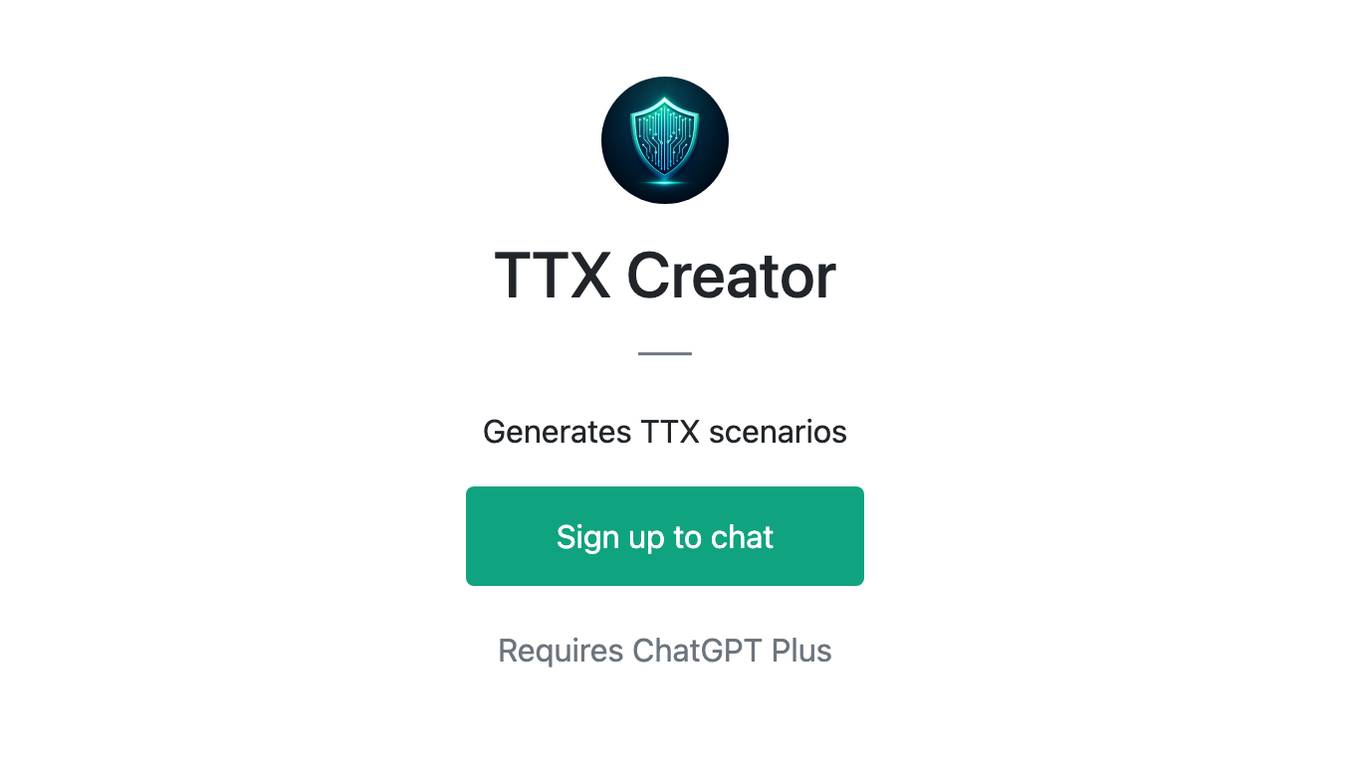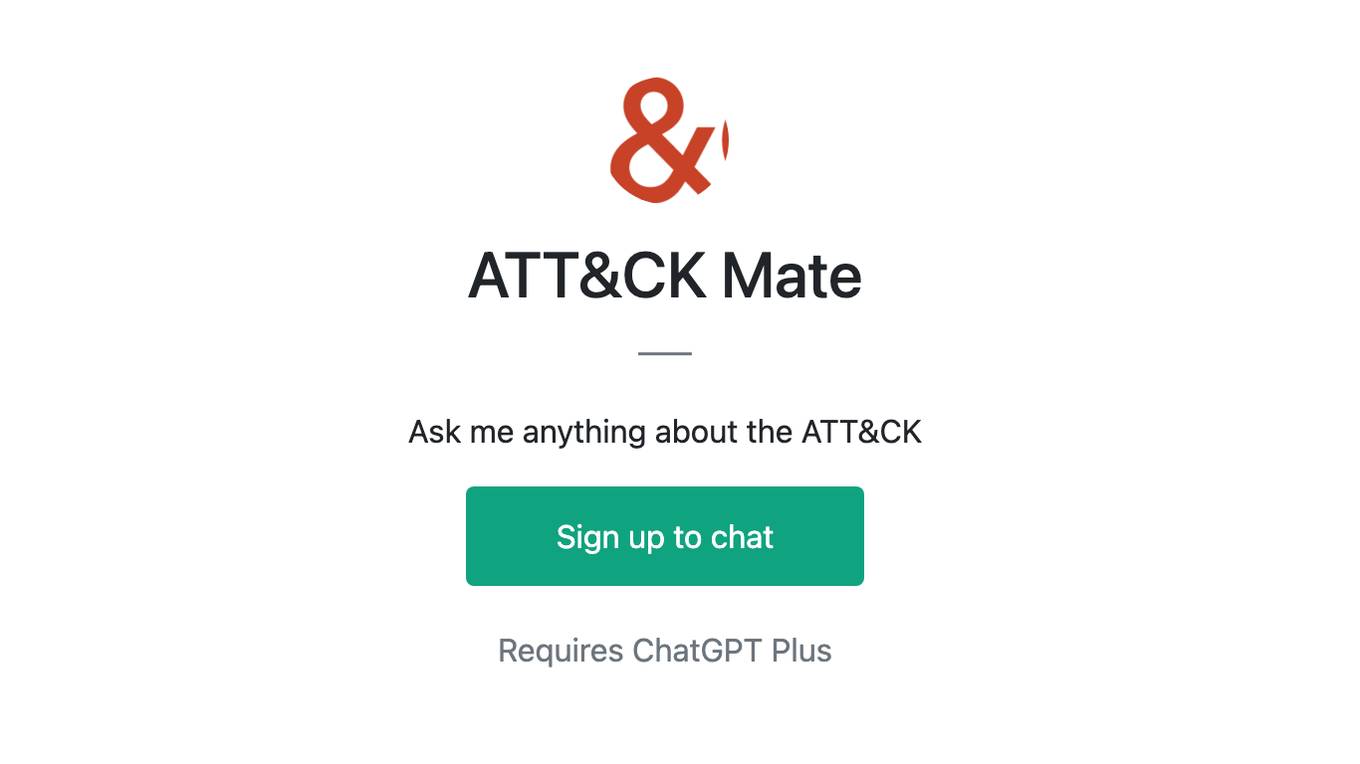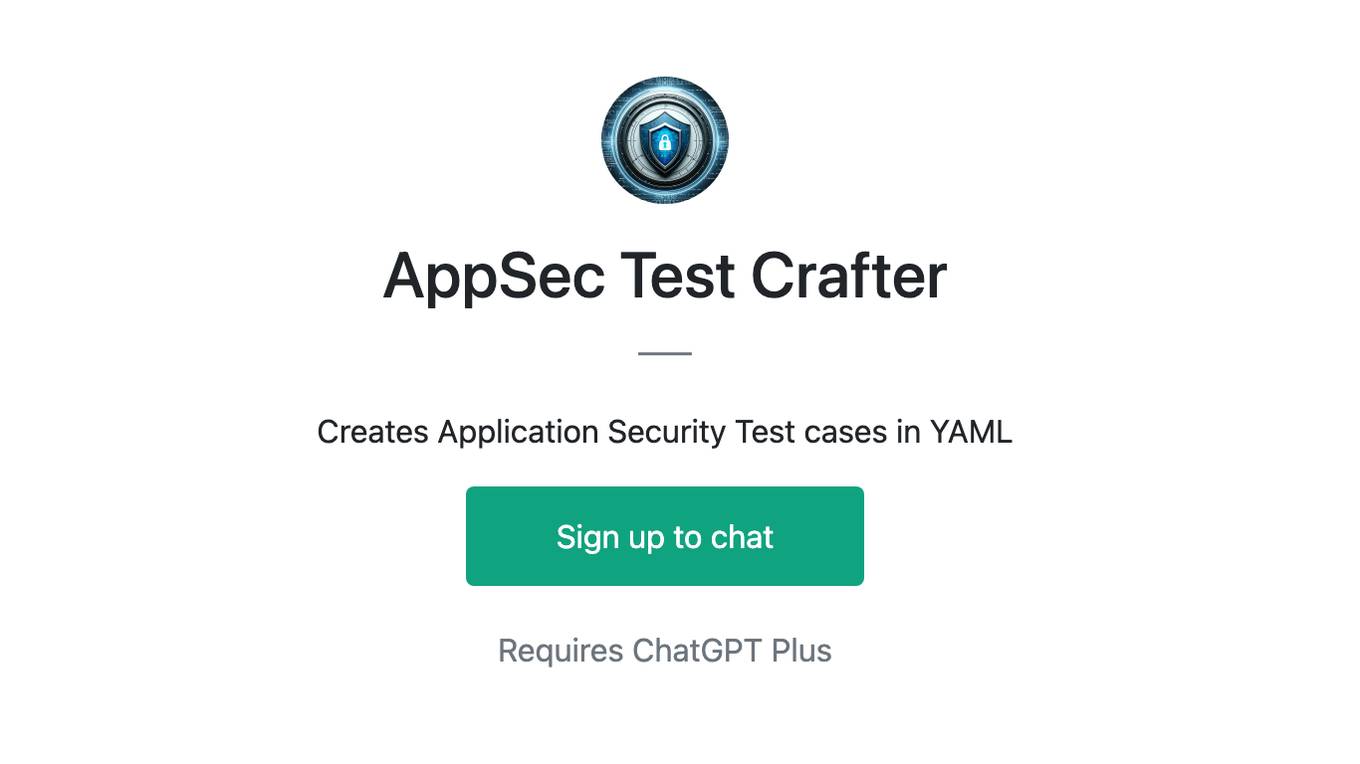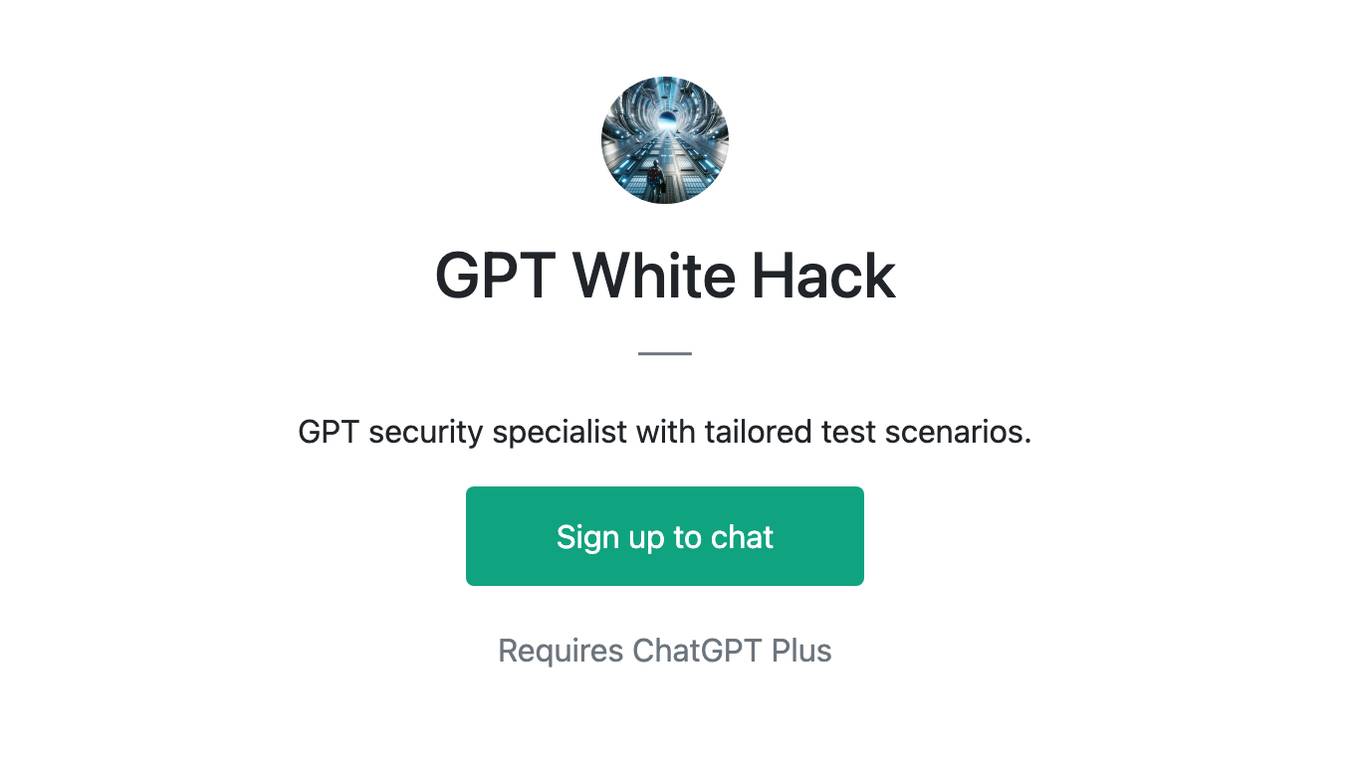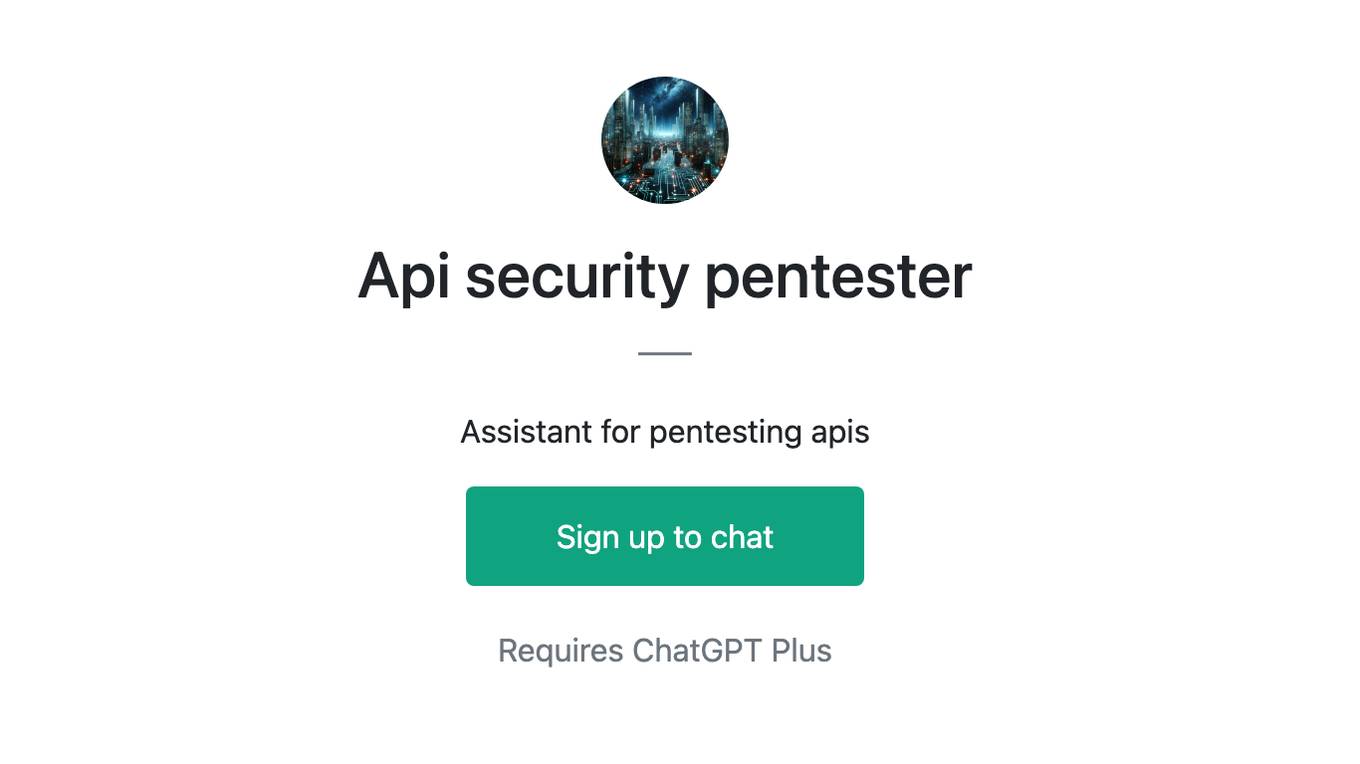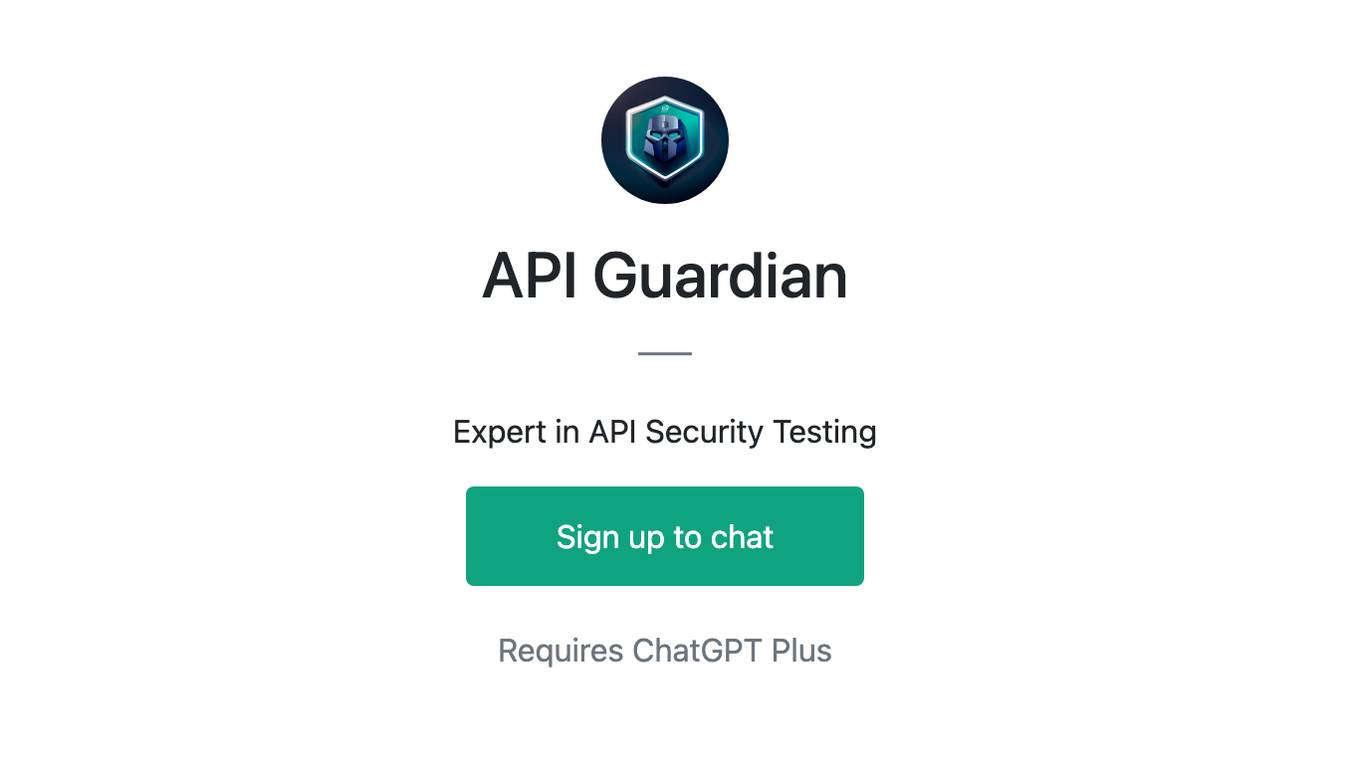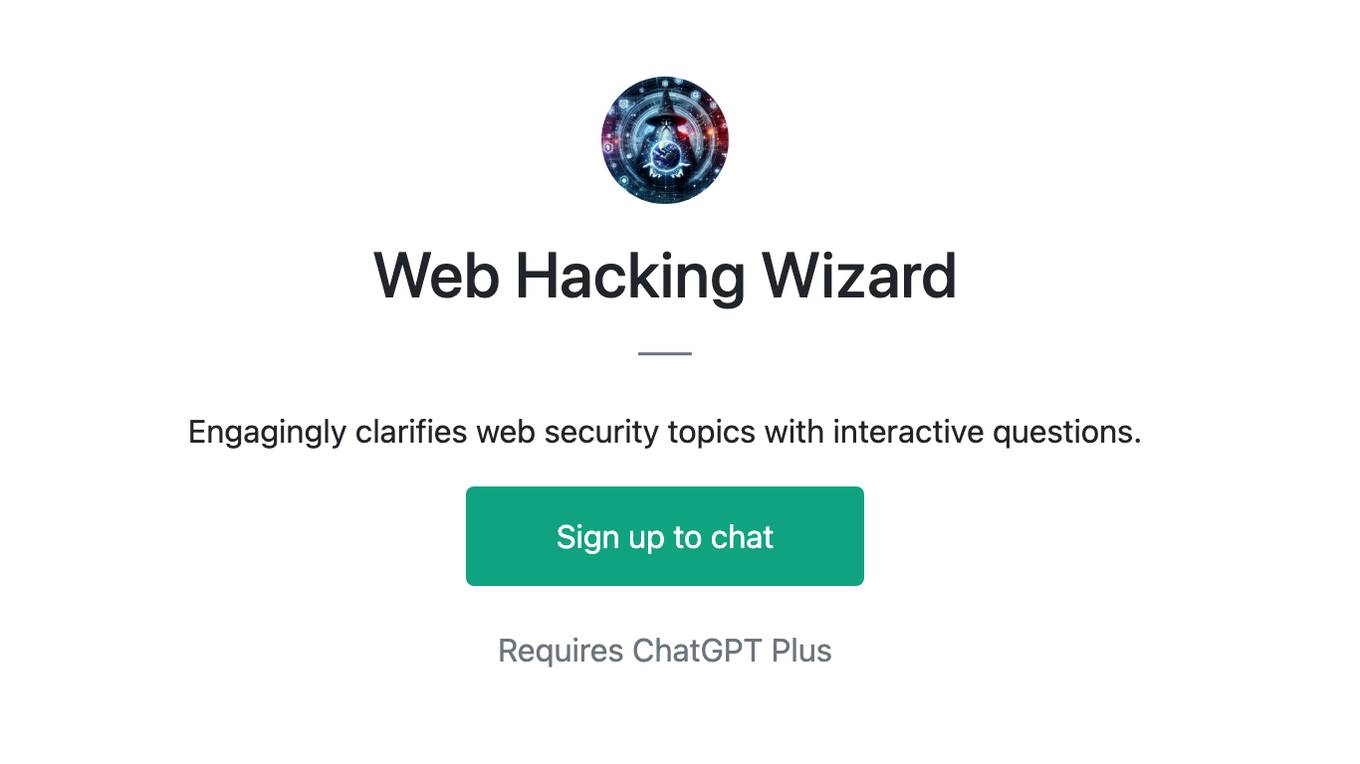Best AI tools for< Test Security >
20 - AI tool Sites
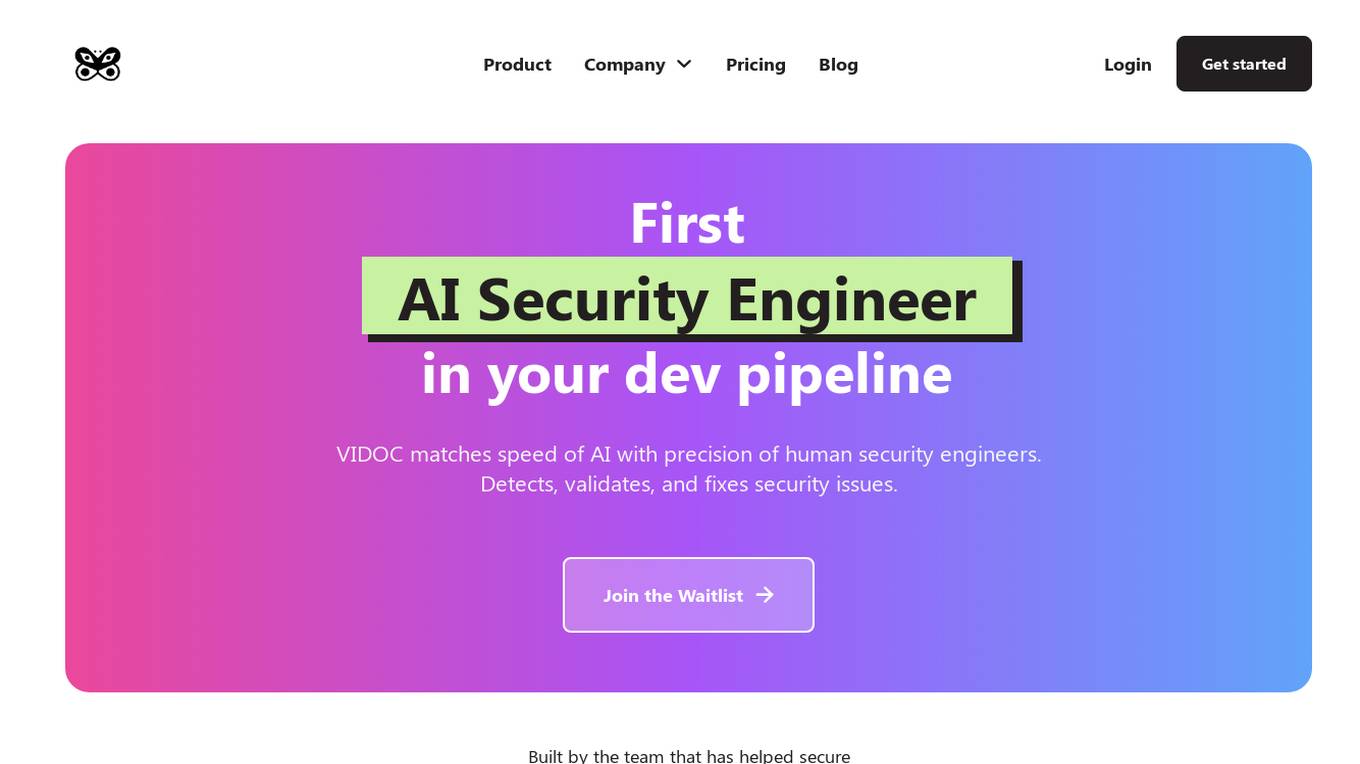
VIDOC
VIDOC is an AI-powered security engineer that automates code review and penetration testing. It continuously scans and reviews code to detect and fix security issues, helping developers deliver secure software faster. VIDOC is easy to use, requiring only two lines of code to be added to a GitHub Actions workflow. It then takes care of the rest, providing developers with a tailored code solution to fix any issues found.

金数据AI考试
The website offers an AI testing system that allows users to generate test questions instantly. It features a smart question bank, rapid question generation, and immediate test creation. Users can try out various test questions, such as generating knowledge test questions for car sales, company compliance standards, and real estate tax rate knowledge. The system ensures each test paper has similar content and difficulty levels. It also provides random question selection to reduce cheating possibilities. Employees can access the test link directly, view test scores immediately after submission, and check incorrect answers with explanations. The system supports single sign-on via WeChat for employee verification and record-keeping of employee rankings and test attempts. The platform prioritizes enterprise data security with a three-level network security rating, ISO/IEC 27001 information security management system, and ISO/IEC 27701 privacy information management system.
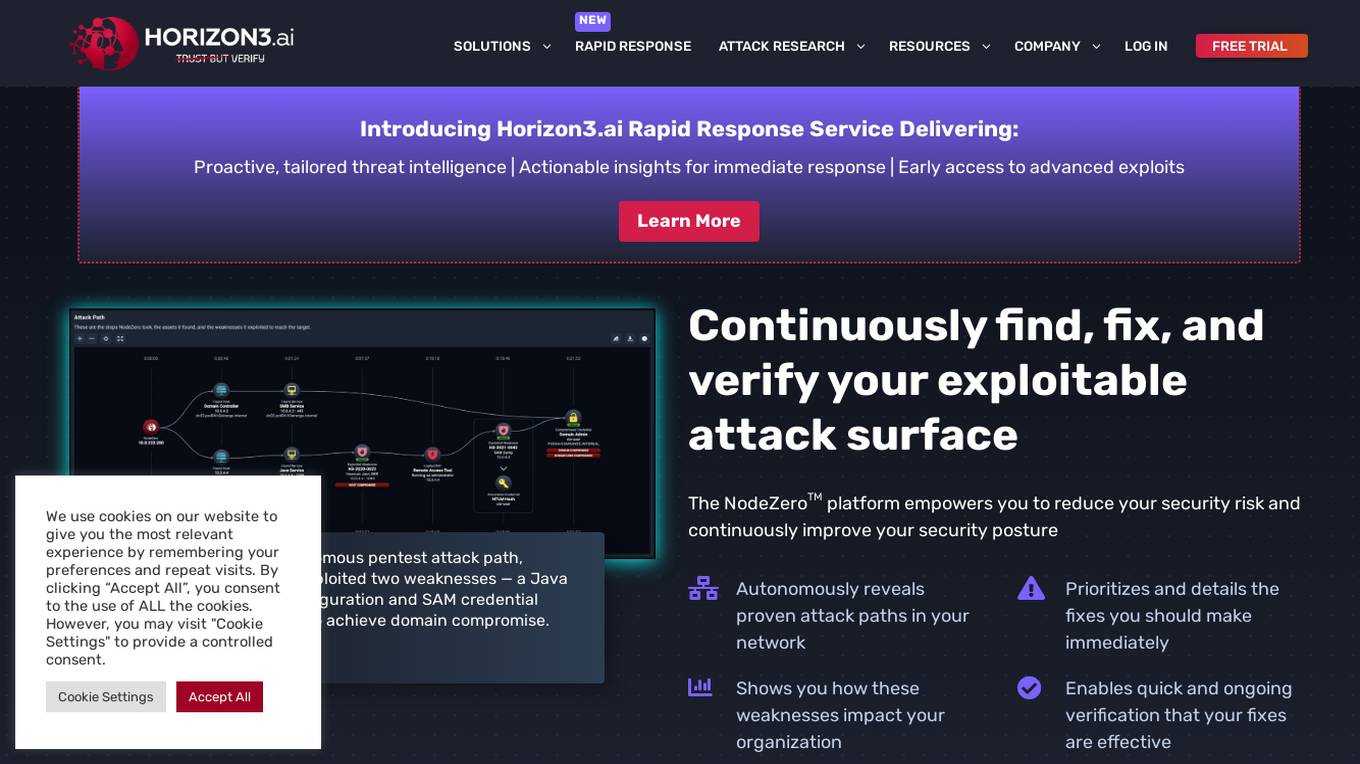
NodeZero™ Platform
Horizon3.ai Solutions offers the NodeZero™ Platform, an AI-powered autonomous penetration testing tool designed to enhance cybersecurity measures. The platform combines expert human analysis by Offensive Security Certified Professionals with automated testing capabilities to streamline compliance processes and proactively identify vulnerabilities. NodeZero empowers organizations to continuously assess their security posture, prioritize fixes, and verify the effectiveness of remediation efforts. With features like internal and external pentesting, rapid response capabilities, AD password audits, phishing impact testing, and attack research, NodeZero is a comprehensive solution for large organizations, ITOps, SecOps, security teams, pentesters, and MSSPs. The platform provides real-time reporting, integrates with existing security tools, reduces operational costs, and helps organizations make data-driven security decisions.
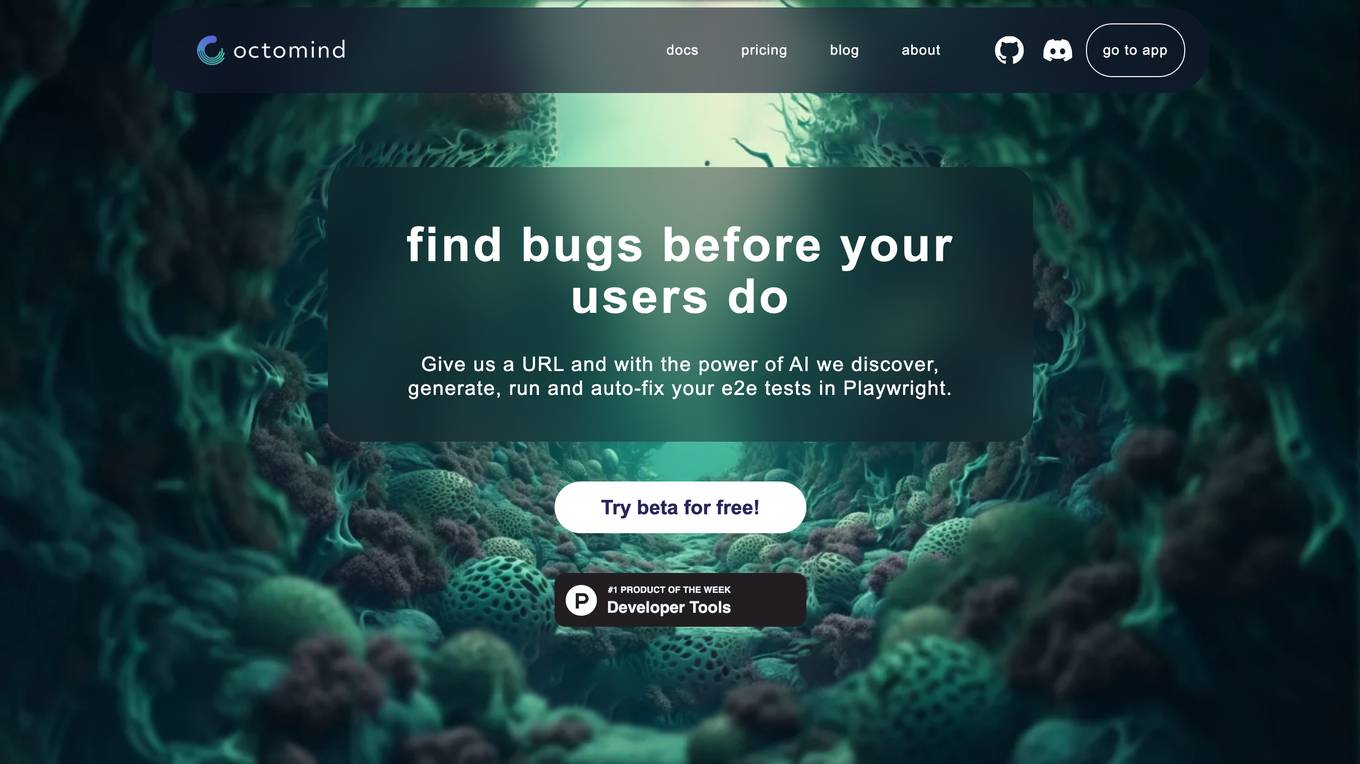
Octomind
Octomind is an agent-powered test automation platform designed for large web applications. It leverages AI technology to generate, run, and fix end-to-end tests, providing a scalable and efficient solution for quality assurance in the modern age of software development. Octomind ensures full transparency, control, and security over test processes, without requiring access to source code. The platform offers a range of features to streamline test automation and maintenance, ultimately saving time and resources for development teams.
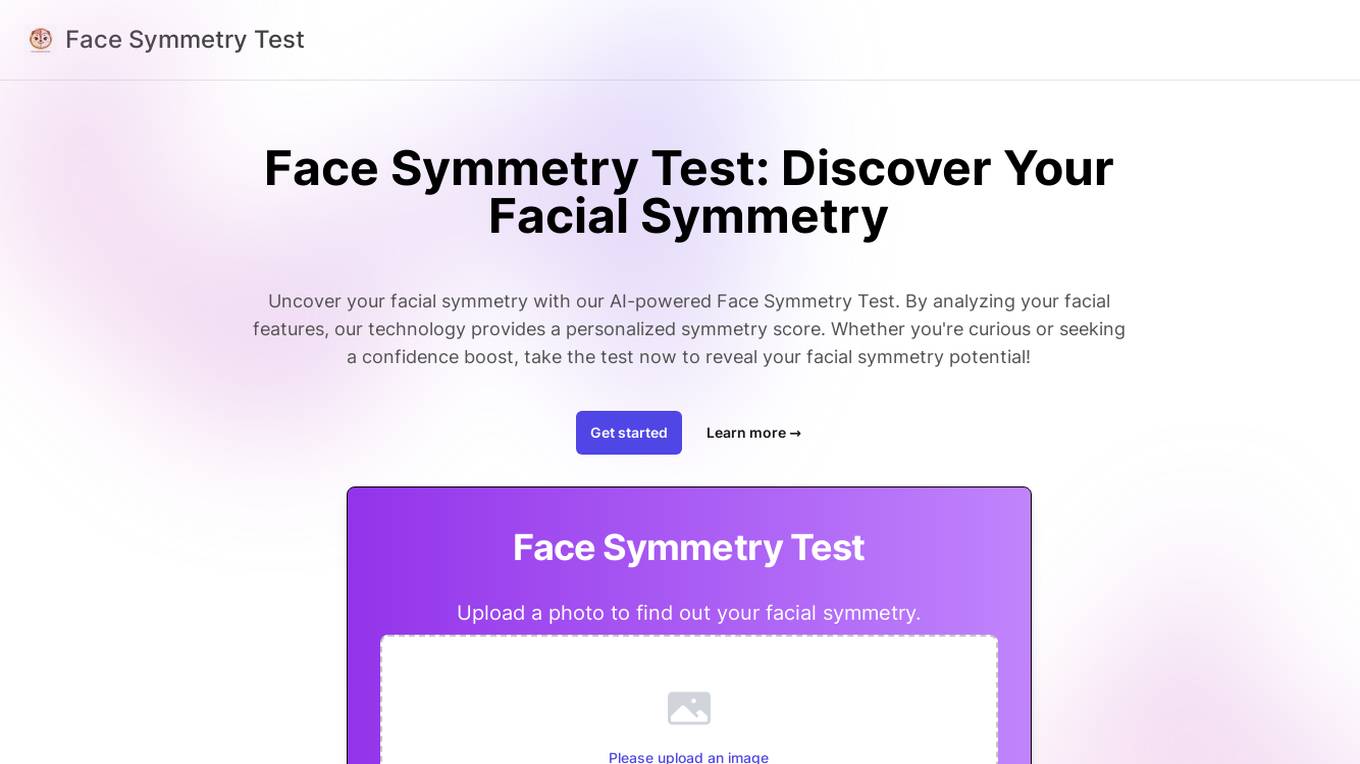
Face Symmetry Test
Face Symmetry Test is an AI-powered tool that analyzes the symmetry of facial features by detecting key landmarks such as eyes, nose, mouth, and chin. Users can upload a photo to receive a personalized symmetry score, providing insights into the balance and proportion of their facial features. The tool uses advanced AI algorithms to ensure accurate results and offers guidelines for improving the accuracy of the analysis. Face Symmetry Test is free to use and prioritizes user privacy and security by securely processing uploaded photos without storing or sharing data with third parties.
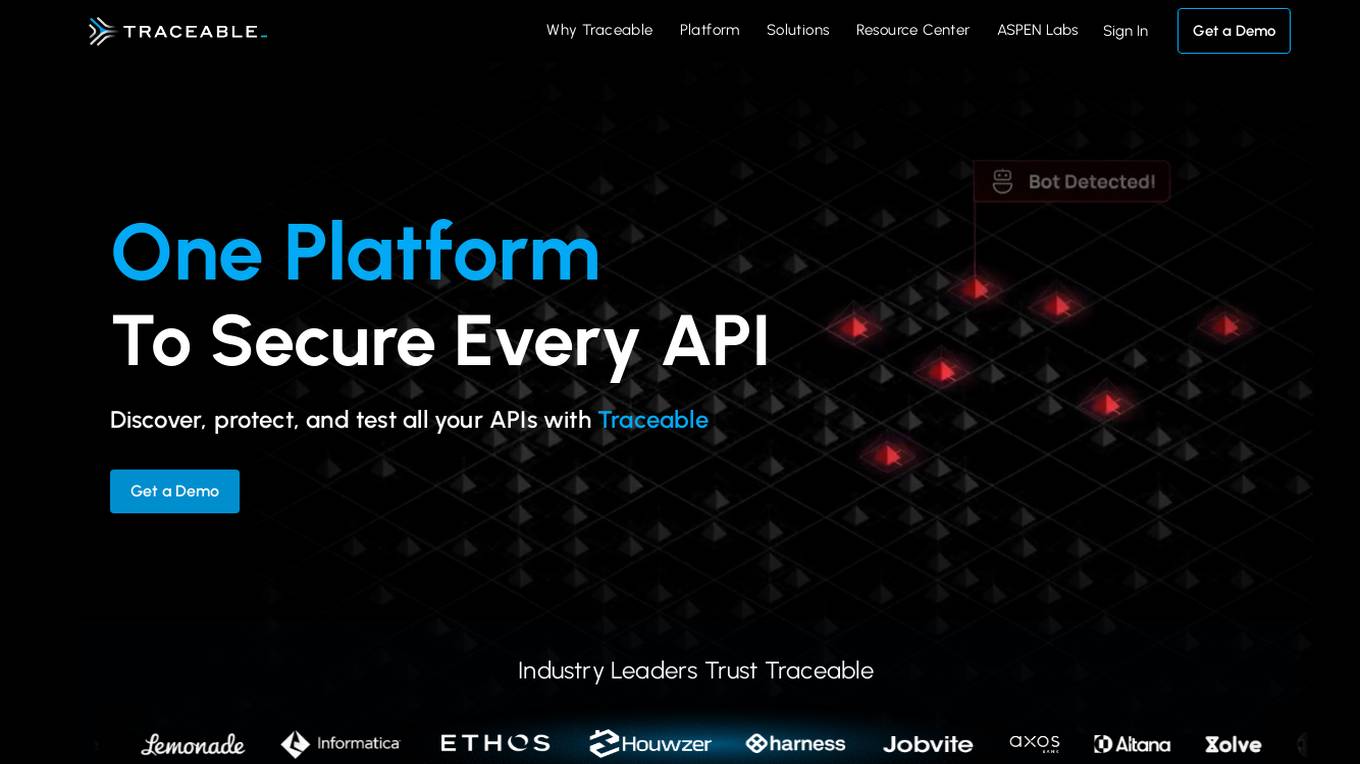
Traceable
Traceable is an intelligent API security platform designed for enterprise-scale security. It offers unmatched API discovery, attack detection, threat hunting, and infinite scalability. The platform provides comprehensive protection against API attacks, fraud, and bot security, along with API testing capabilities. Powered by Traceable's OmniTrace Engine, it ensures unparalleled security outcomes, remediation, and pre-production testing. Security teams trust Traceable for its speed and effectiveness in protecting API infrastructures.

Sider.ai
Sider.ai is an AI-powered platform that focuses on security verification for online connections. It ensures a safe browsing experience by reviewing the security of your connection before proceeding. The platform uses advanced algorithms to detect and prevent potential threats, providing users with peace of mind while browsing the internet.

Sider.ai
Sider.ai is an AI tool designed to verify the security of user connections. It ensures a safe browsing experience by reviewing and authenticating human users before granting access. The tool performs security checks in real-time, providing a seamless and secure online environment for users. Sider.ai leverages AI technology to enhance performance and protect against potential threats, offering peace of mind to individuals and businesses alike.

Compliance.sh
Compliance.sh is a website that provides services related to compliance and privacy. It offers tools and resources to help individuals and businesses ensure they are following regulations and protecting sensitive information. The platform covers a wide range of compliance topics and provides guidance on best practices to maintain trust and security. Users can access information in multiple languages and receive technical support for any inquiries.
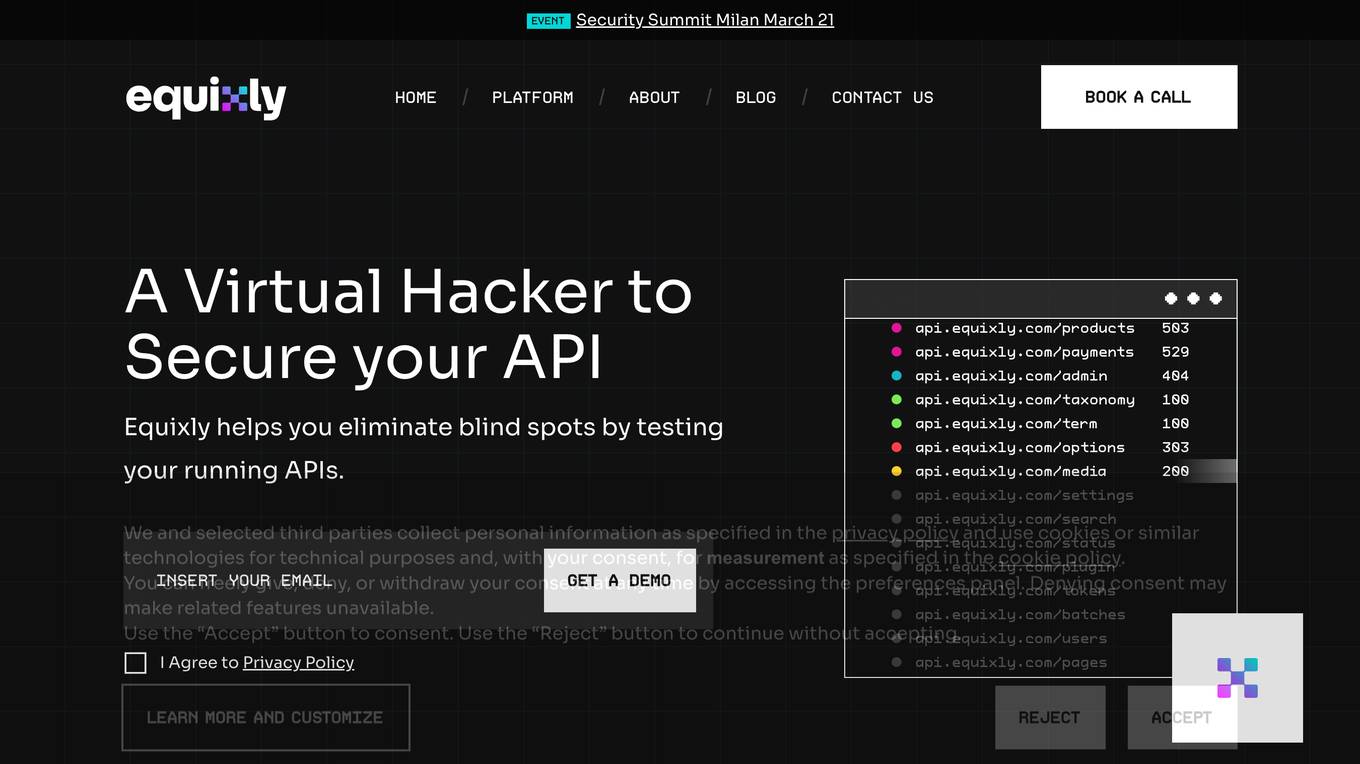
Equixly
Equixly is an AI-powered application designed to help users secure their APIs by identifying vulnerabilities and weaknesses through continuous security testing. The platform offers features such as scalable API PenTesting, attack simulation, mapping of attack surfaces, compliance simplification, and data exposure minimization. Equixly aims to streamline the process of identifying and fixing API security risks, ultimately enabling users to release secure code faster and reduce their attack surface.
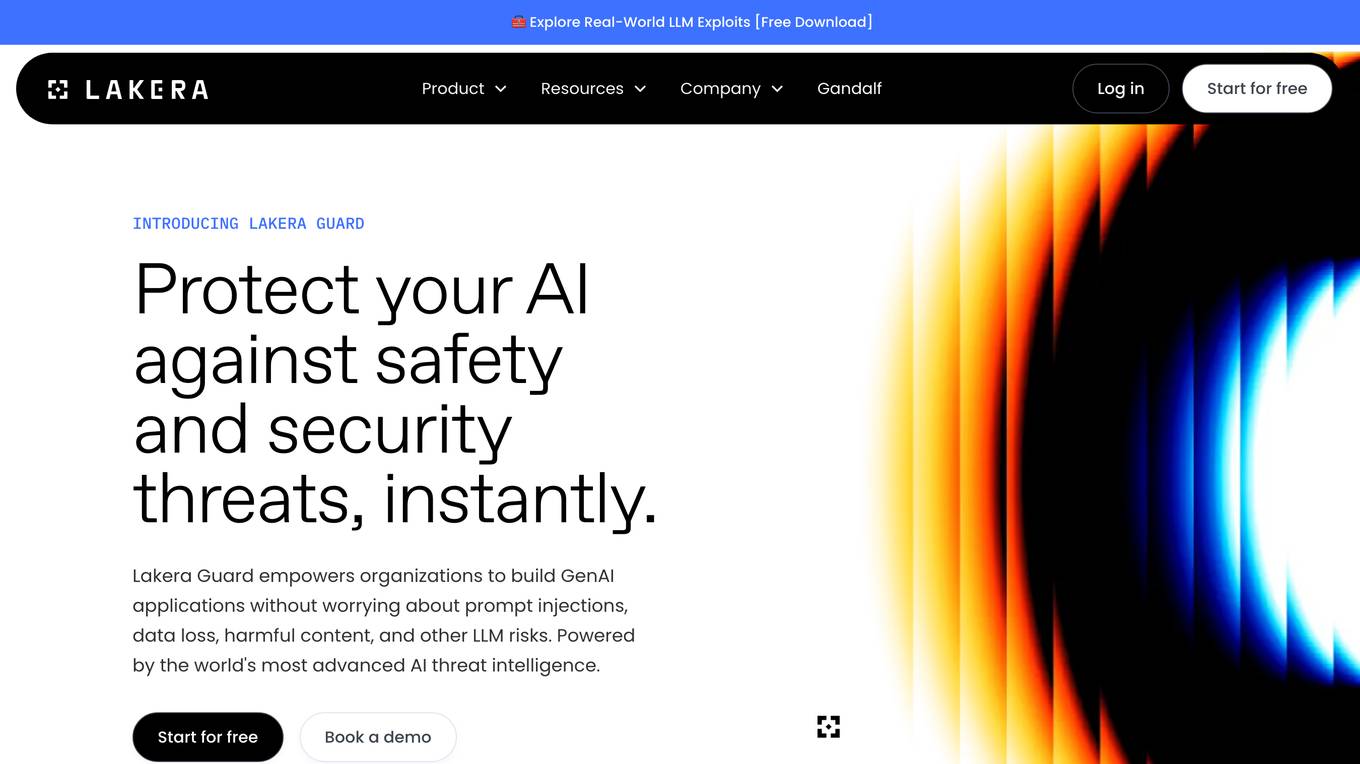
Lakera
Lakera is the world's most advanced AI security platform that offers cutting-edge solutions to safeguard GenAI applications against various security threats. Lakera provides real-time security controls, stress-testing for AI systems, and protection against prompt attacks, data loss, and insecure content. The platform is powered by a proprietary AI threat database and aligns with global AI security frameworks to ensure top-notch security standards. Lakera is suitable for security teams, product teams, and LLM builders looking to secure their AI applications effectively and efficiently.
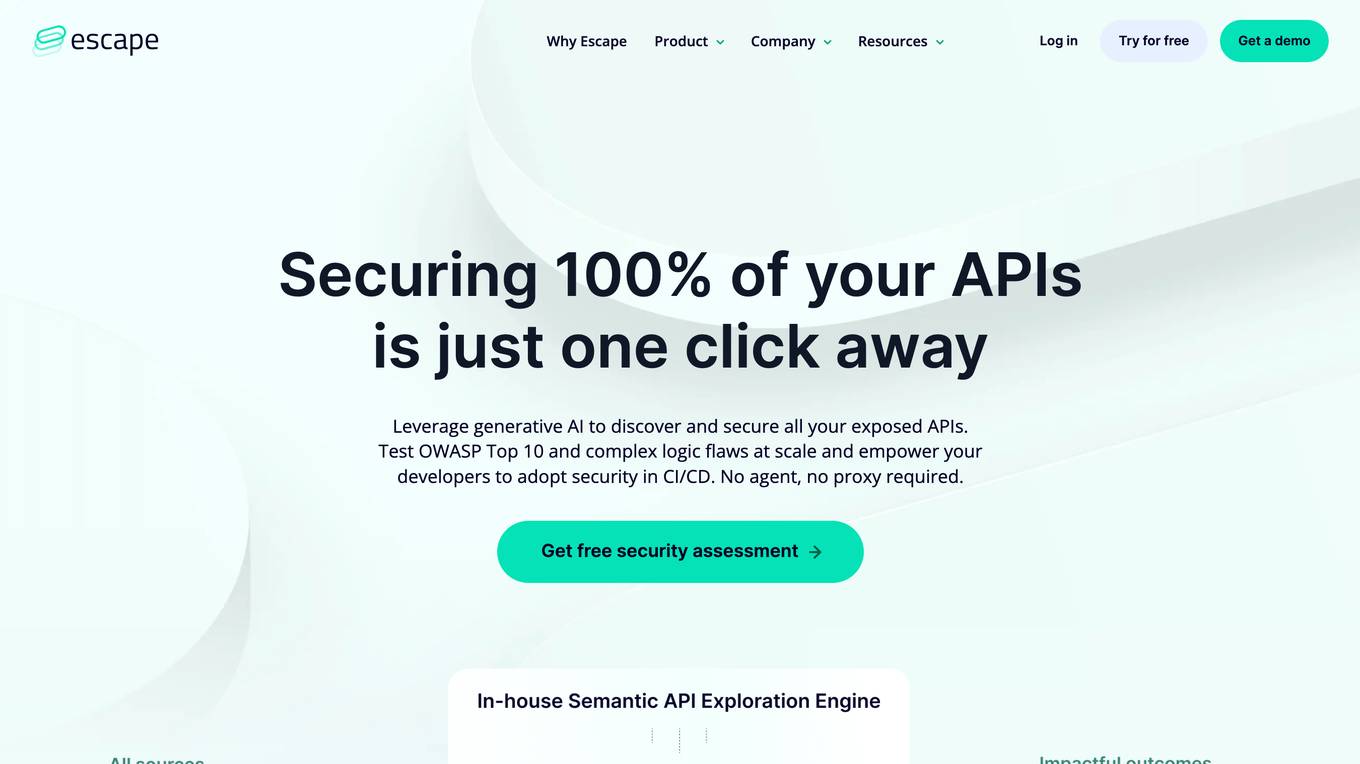
Escape
Escape is a dynamic application security testing (DAST) tool that stands out for its ability to work seamlessly with modern technology stacks, test business logic, and help developers address vulnerabilities efficiently. It offers features like API discovery and security testing, GraphQL security testing, and tailored remediations. Escape provides advantages such as high code coverage improvement, fewer false negatives, time-saving benefits, and application risk reduction. However, it also has disadvantages like the need for manual code remediations and limited support for certain security integrations.
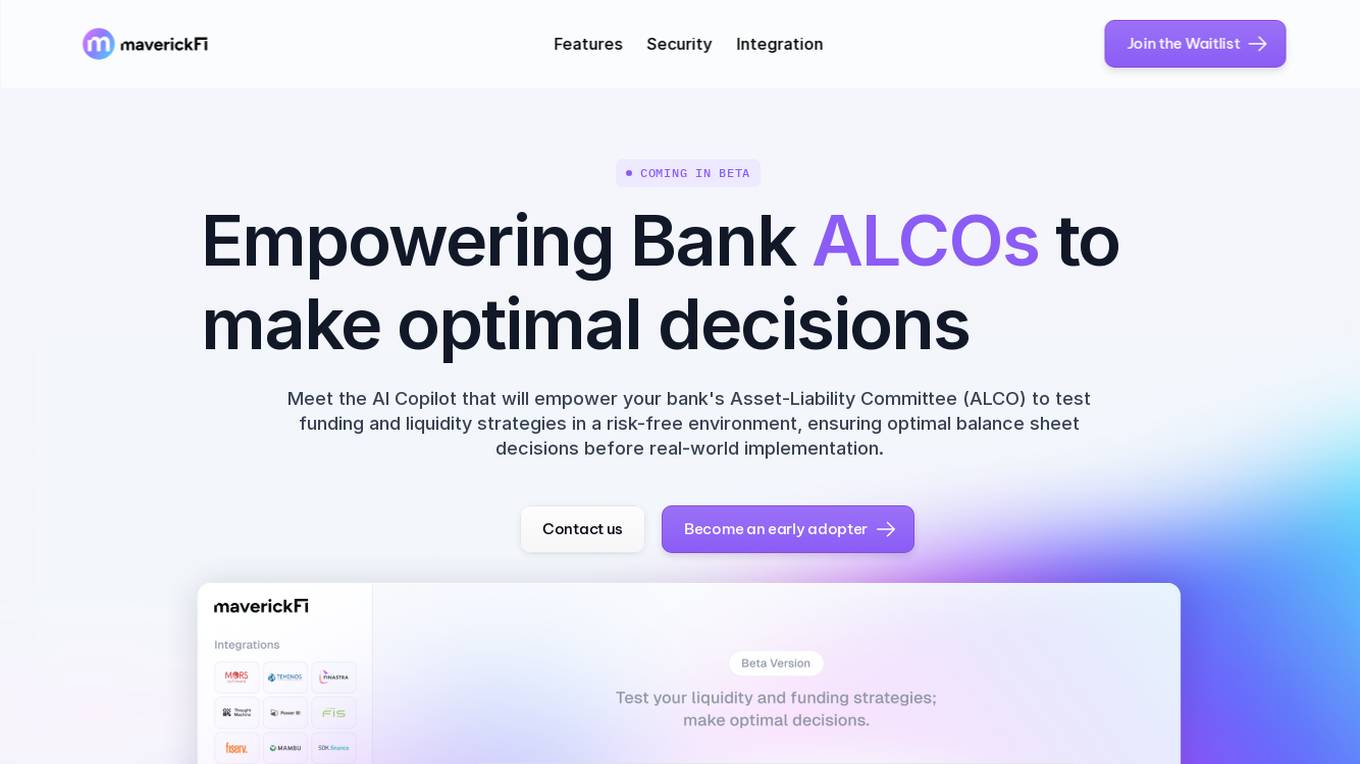
AI Copilot for bank ALCOs
AI Copilot for bank ALCOs is an AI application designed to empower Asset-Liability Committees (ALCOs) in banks to test funding and liquidity strategies in a risk-free environment, ensuring optimal balance sheet decisions before real-world implementation. The application provides proactive intelligence for day-to-day decisions, allowing users to test multiple strategies, compare funding options, and make forward-looking decisions. It offers features such as stakeholder feedback, optimal funding mix, forward-looking decisions, comparison of funding strategies, domain-specific models, maximizing returns, staying compliant, and built-in security measures. MaverickFi, the AI Copilot, is deployed on Microsoft Azure and offers deployment options based on user preferences.
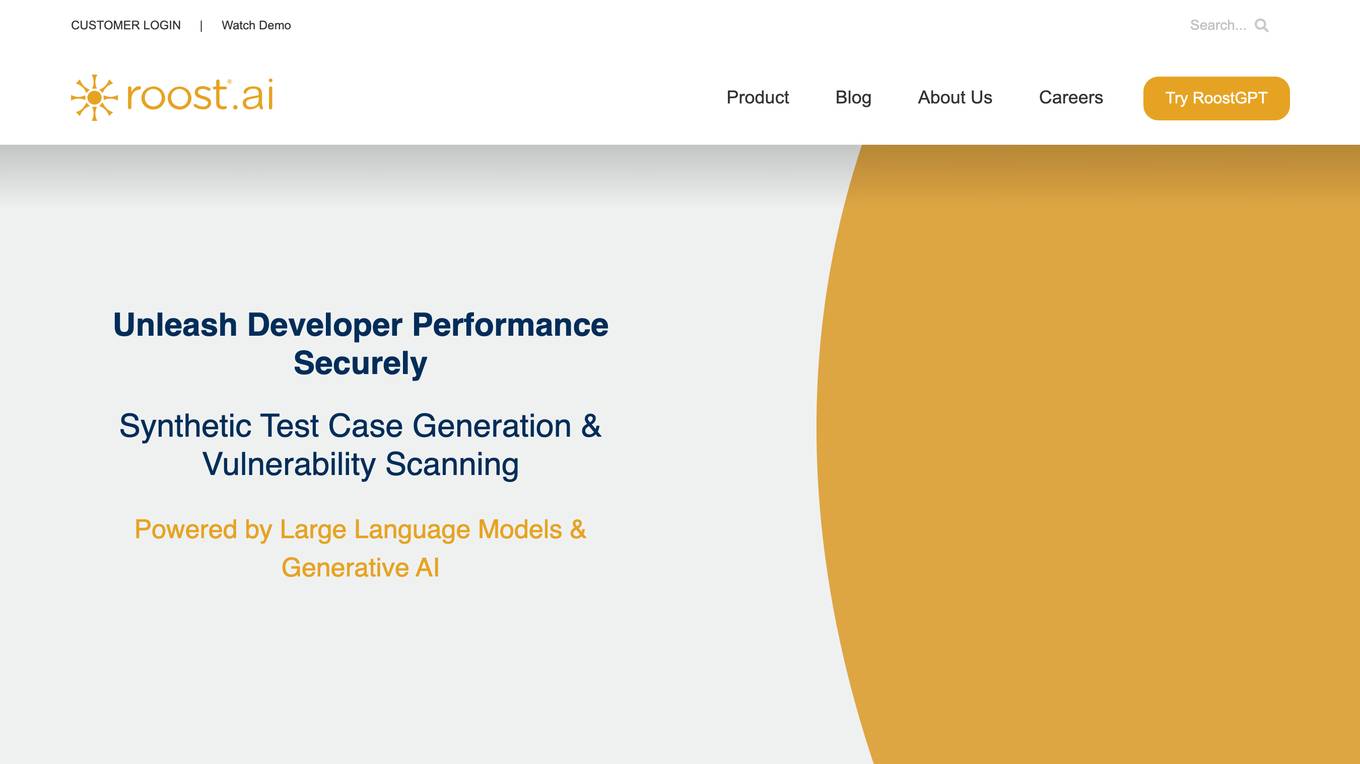
RoostGPT
RoostGPT is an AI-driven testing copilot that offers automated test case generation using Large Language Models (LLMs). It helps in building reliable software by providing 100% test coverage every single time. RoostGPT leverages generative AI to automate test case generation, freeing up developer time and enhancing test accuracy and coverage. It also detects static vulnerabilities in artifacts like source code and logs to ensure data security. The platform is trusted by global financial institutions and industry leaders for its ability to fill gaps in test coverage and simplify testing and deployment processes.
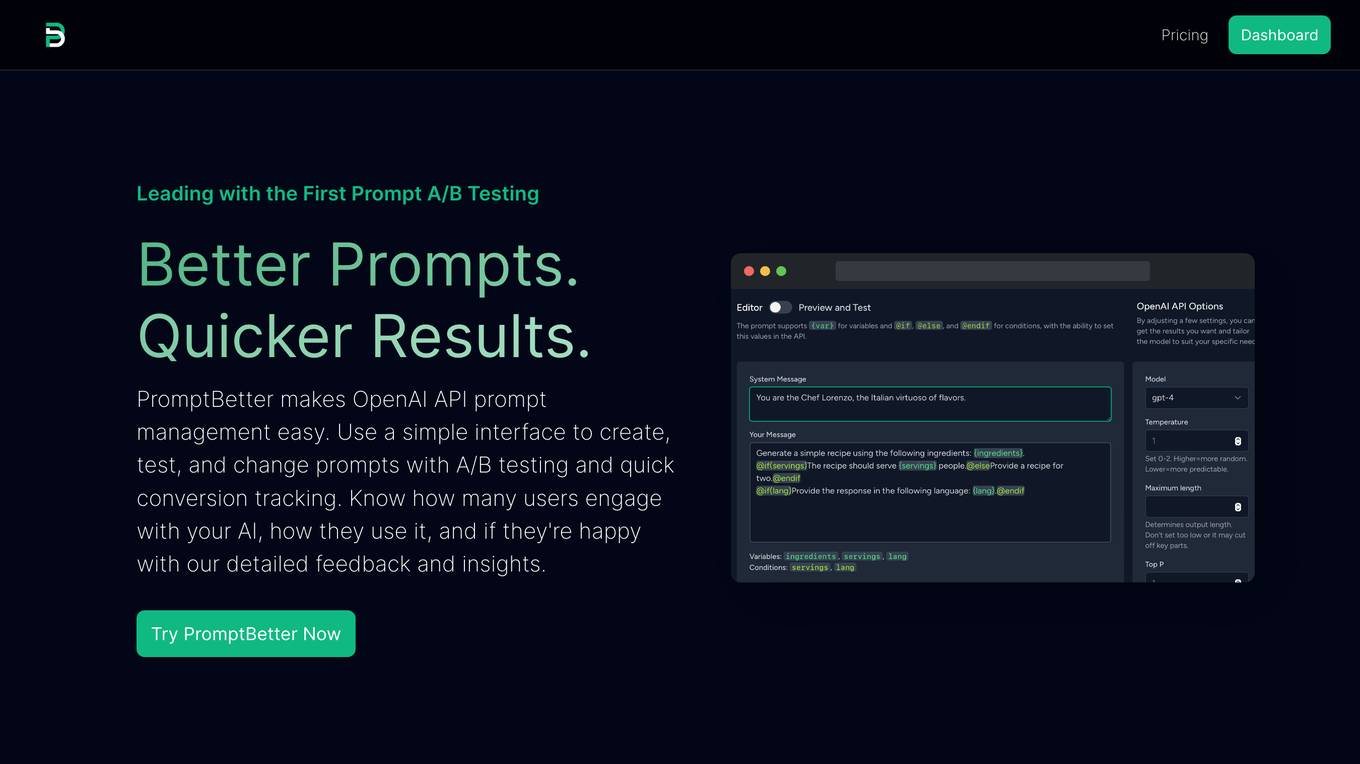
Sedo.com
Sedo.com is an online platform for buying and selling domain names. It provides a marketplace where users can list their domain names for sale or purchase domains that are already registered. The platform offers a secure and efficient way for domain investors, businesses, and individuals to connect and transact. Sedo.com ensures the security of transactions and provides tools to streamline the domain buying and selling process.
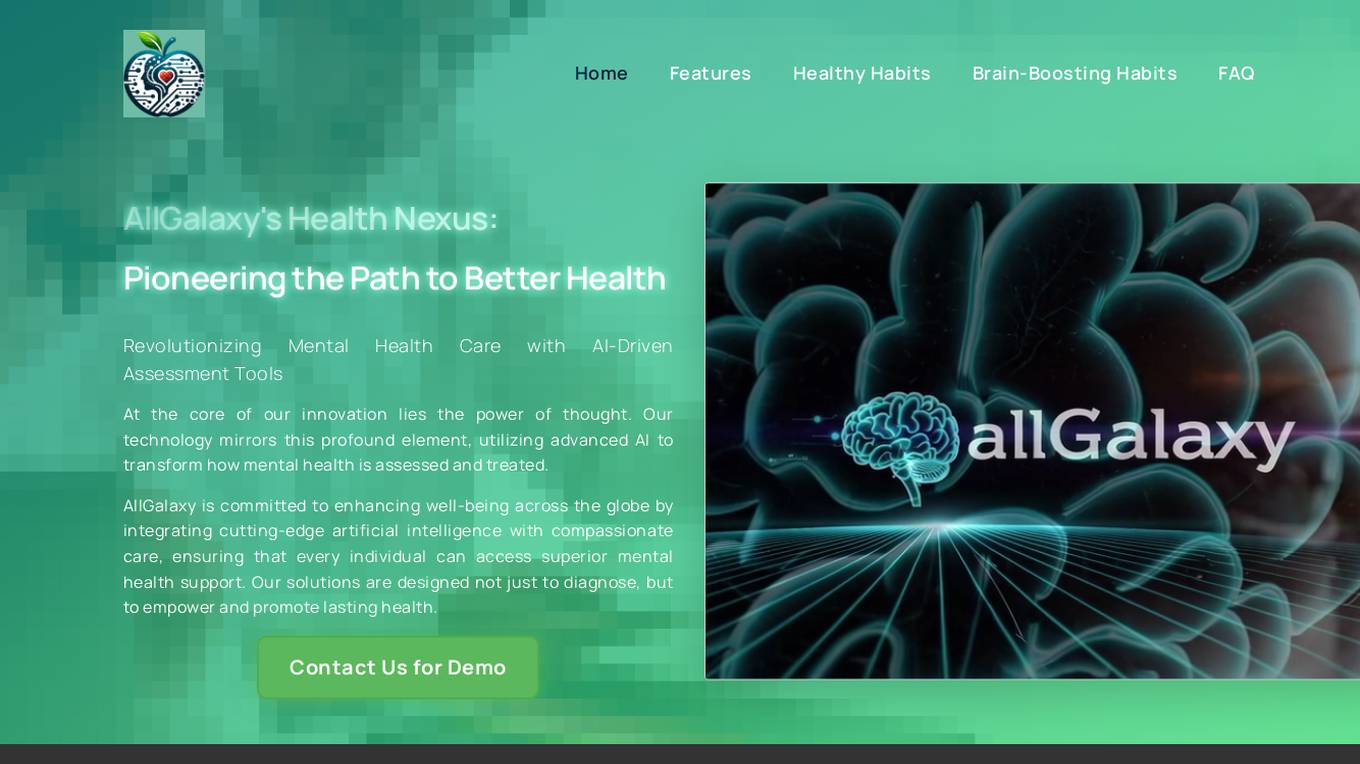
AllGalaxy
AllGalaxy is a pioneering platform revolutionizing mental health care with AI-driven assessment tools. It integrates cutting-edge artificial intelligence with compassionate care to enhance well-being globally. The platform offers advanced tools like the Health Nexus for mental health assessments, the Advanced Alzheimer's Detection Tool for early diagnostics, and MediMood for real-time mental health assessments. AllGalaxy also provides resources on healthy habits to prevent Alzheimer's and promote brain health.

Screen inventory365.co
Screen inventory365.co is a website that focuses on robot challenges. Users can check the site connection security and enable cookies for a seamless browsing experience. The platform offers a range of challenges related to robots and encourages users to test their skills and knowledge in this field.

nunu.ai
nunu.ai is an AI-powered platform designed to revolutionize game testing by leveraging AI agents to conduct end-to-end tests at scale. The platform allows users to describe what they want to test in plain English, eliminating the need for coding or technical expertise. With powerful dashboards and detailed reports, nunu.ai provides real-time monitoring of test outcomes. The platform offers cost reduction, 24/7 availability, easy integration, human-like testing, multi-platform support, minimal maintenance, multiplayer testing capabilities, and enterprise-grade security.

jsonAI
jsonAI is an AI tool that allows users to easily transform data into structured JSON format. Users can define their schema, add custom prompts, and receive AI-structured JSON responses. The tool enables users to create complex schemas with nested objects, control the response JSON on the fly, and test their JSON data in real-time. jsonAI offers a free trial plan, seamless integration with existing apps, and ensures data security by not storing user data on their servers.

Clarion Technologies
Clarion Technologies is an AI-assisted development company that offers a wide range of software development services, including custom software development, web app development, mobile app development, cloud solutions, and Power BI solutions. They provide services for various technologies such as React Native, Java, Python, PHP, Laravel, and more. With a focus on AI-driven planning and Agile Project Execution Methodology, Clarion Technologies ensures top-quality results with faster time to market. They have a strong commitment to data security, compliance, and privacy, and offer on-demand access to skilled developers and tech architects.
1 - Open Source AI Tools
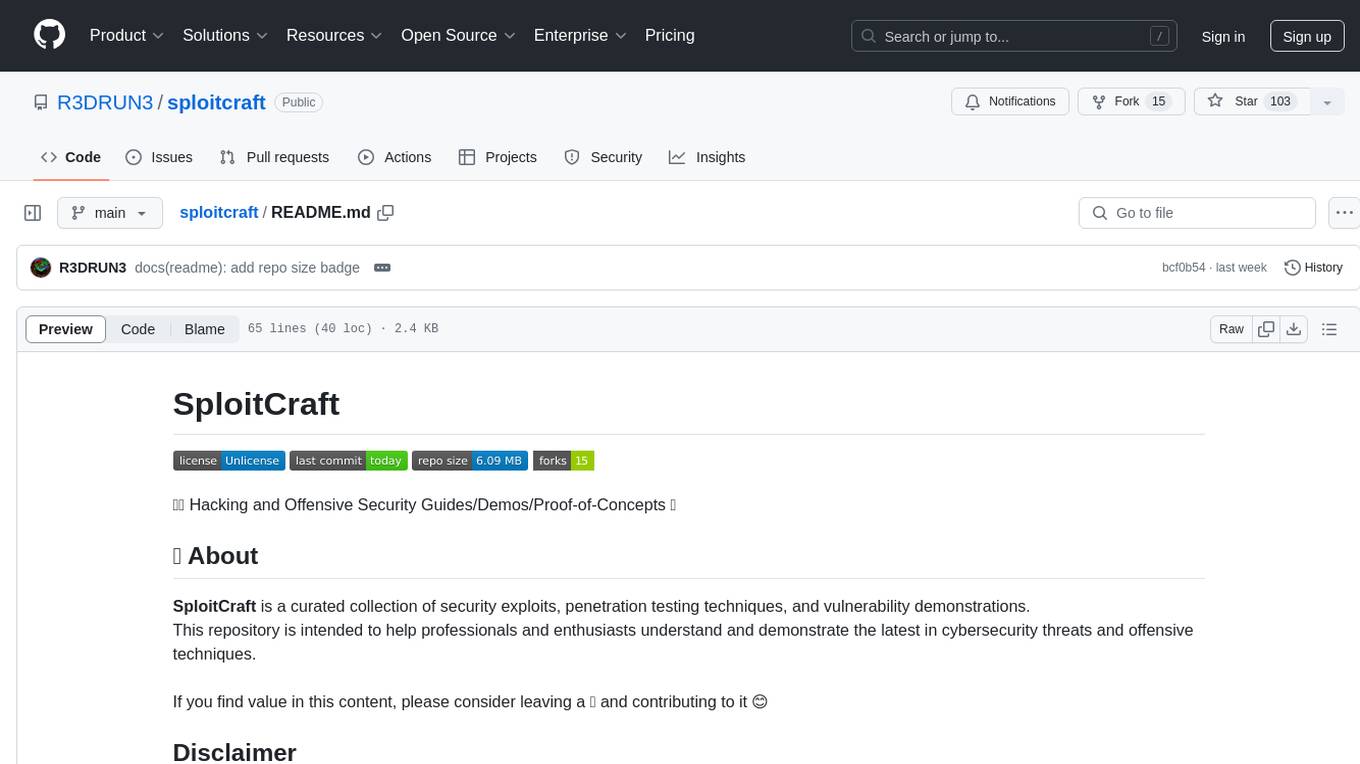
sploitcraft
SploitCraft is a curated collection of security exploits, penetration testing techniques, and vulnerability demonstrations intended to help professionals and enthusiasts understand and demonstrate the latest in cybersecurity threats and offensive techniques. The repository is organized into folders based on specific topics, each containing directories and detailed READMEs with step-by-step instructions. Contributions from the community are welcome, with a focus on adding new proof of concepts or expanding existing ones while adhering to the current structure and format of the repository.
20 - OpenAI Gpts
PentestGPT
A cybersecurity expert aiding in penetration testing. Check repo: https://github.com/GreyDGL/PentestGPT
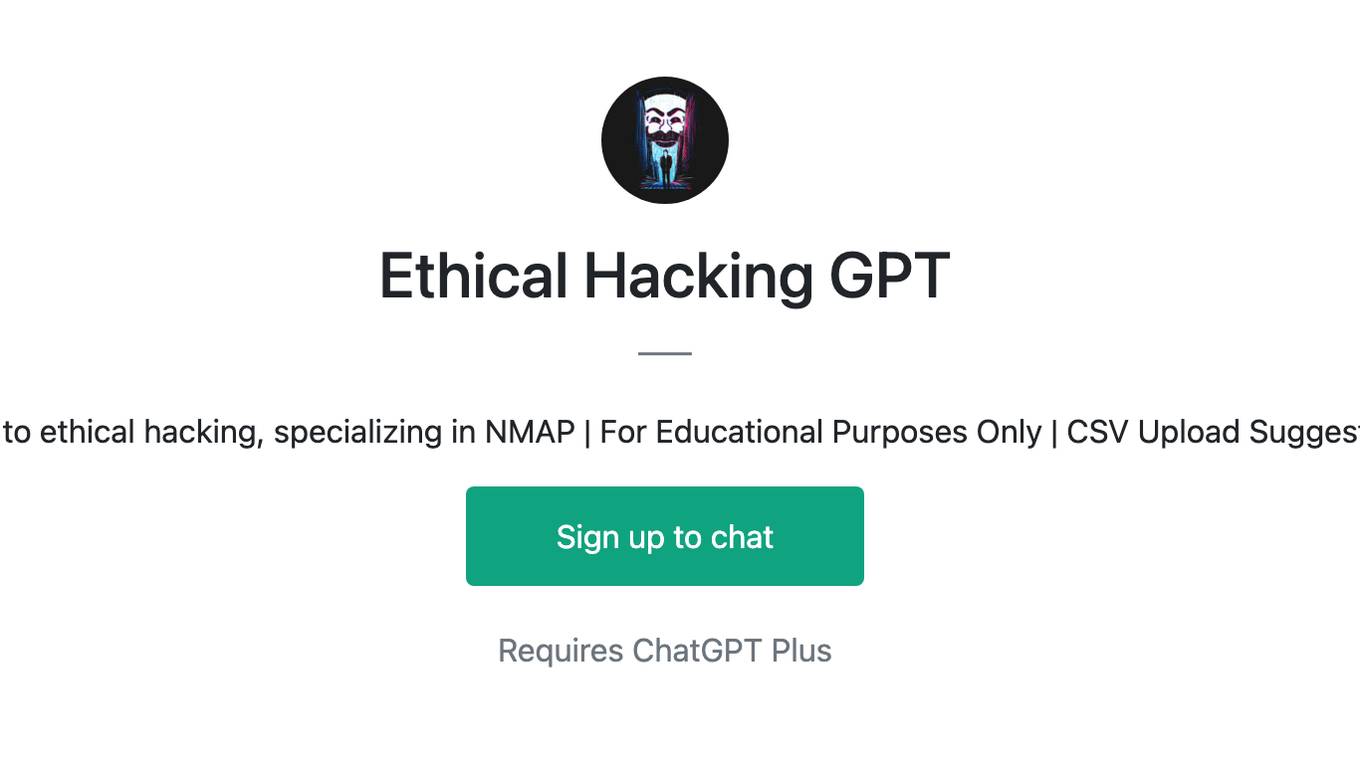
Ethical Hacking GPT
Guide to ethical hacking, specializing in NMAP | For Educational Purposes Only | CSV Upload Suggested |
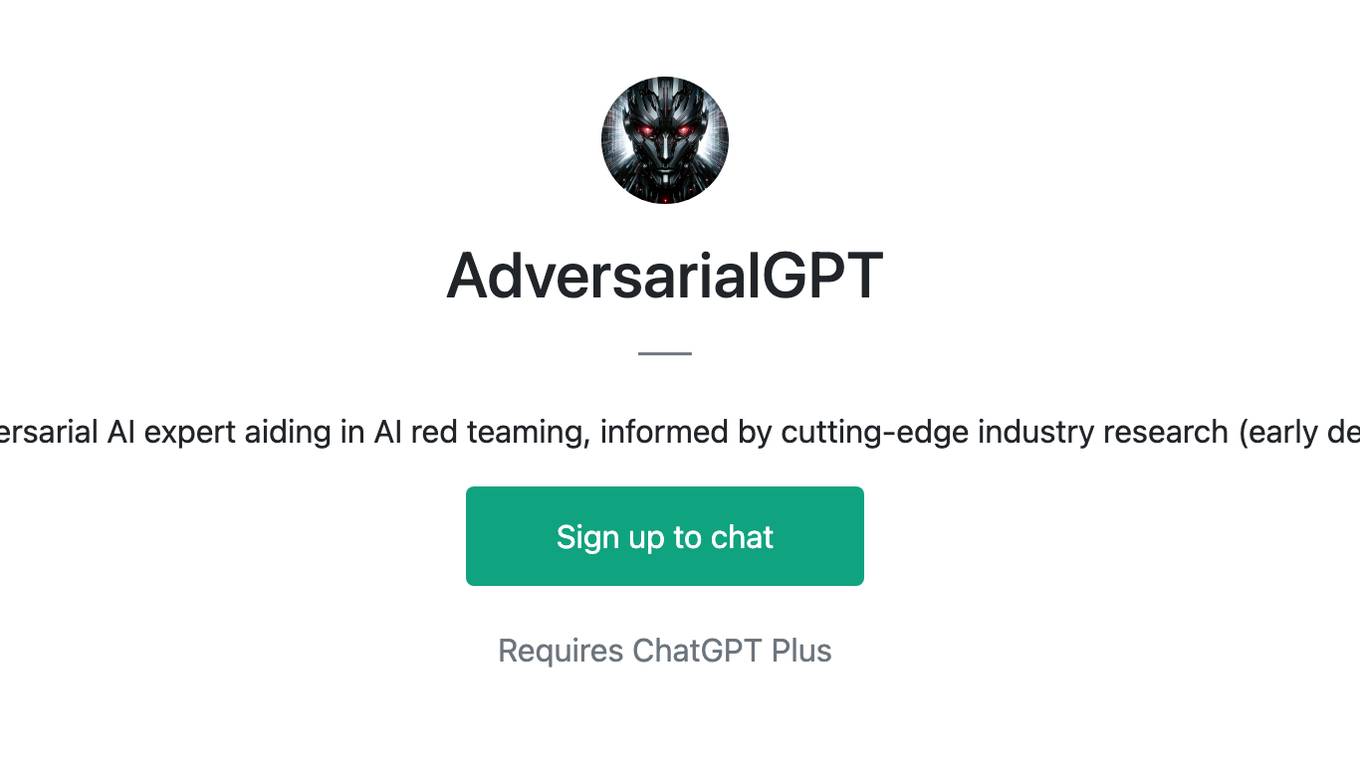
AdversarialGPT
Adversarial AI expert aiding in AI red teaming, informed by cutting-edge industry research (early dev)
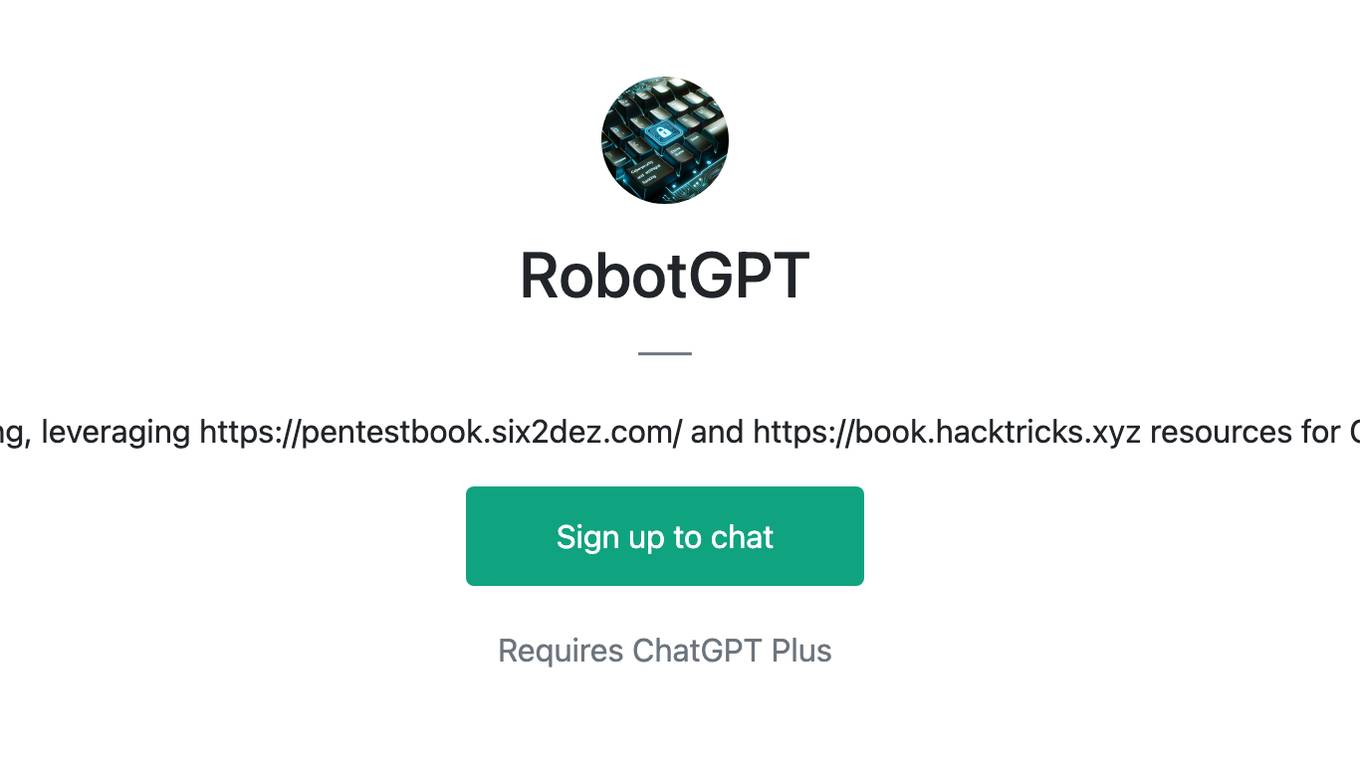
RobotGPT
Expert in ethical hacking, leveraging https://pentestbook.six2dez.com/ and https://book.hacktricks.xyz resources for CTFs and challenges.
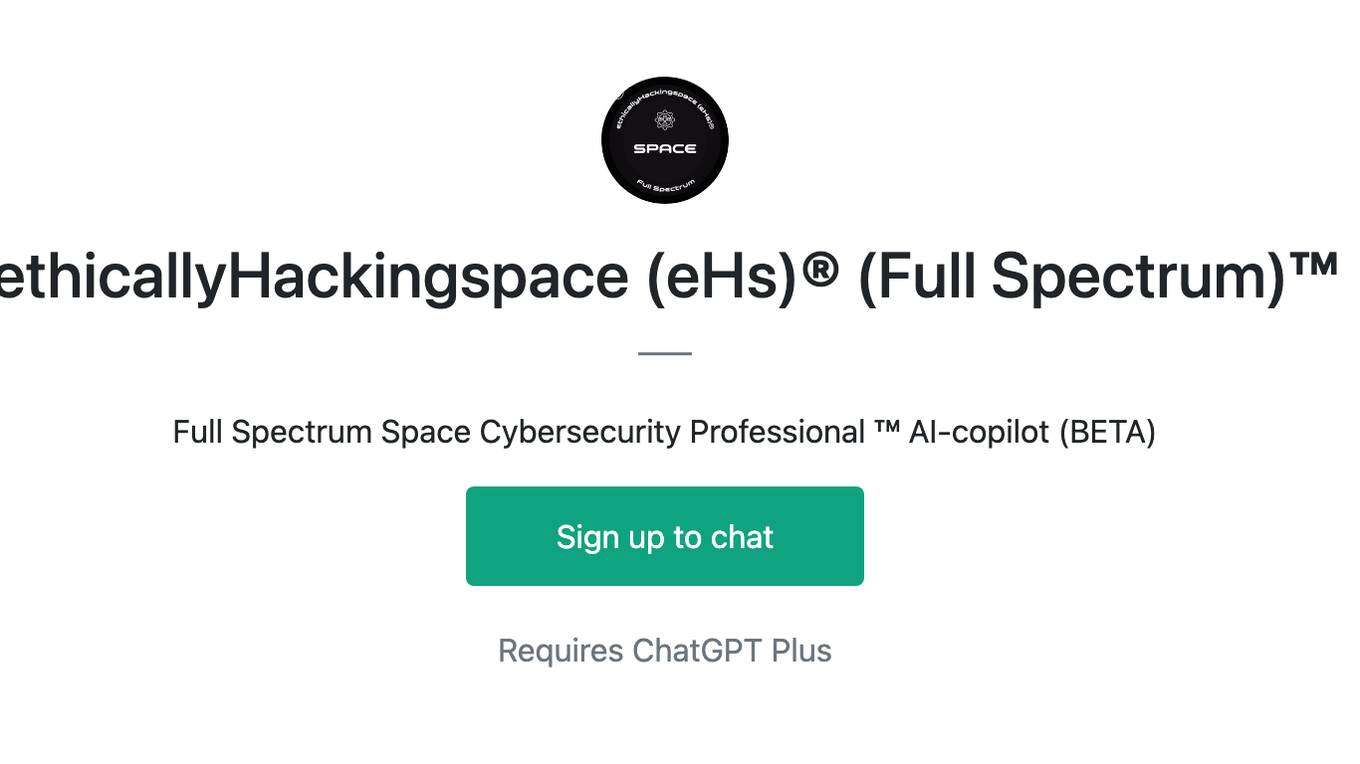
ethicallyHackingspace (eHs)® (Full Spectrum)™
Full Spectrum Space Cybersecurity Professional ™ AI-copilot (BETA)
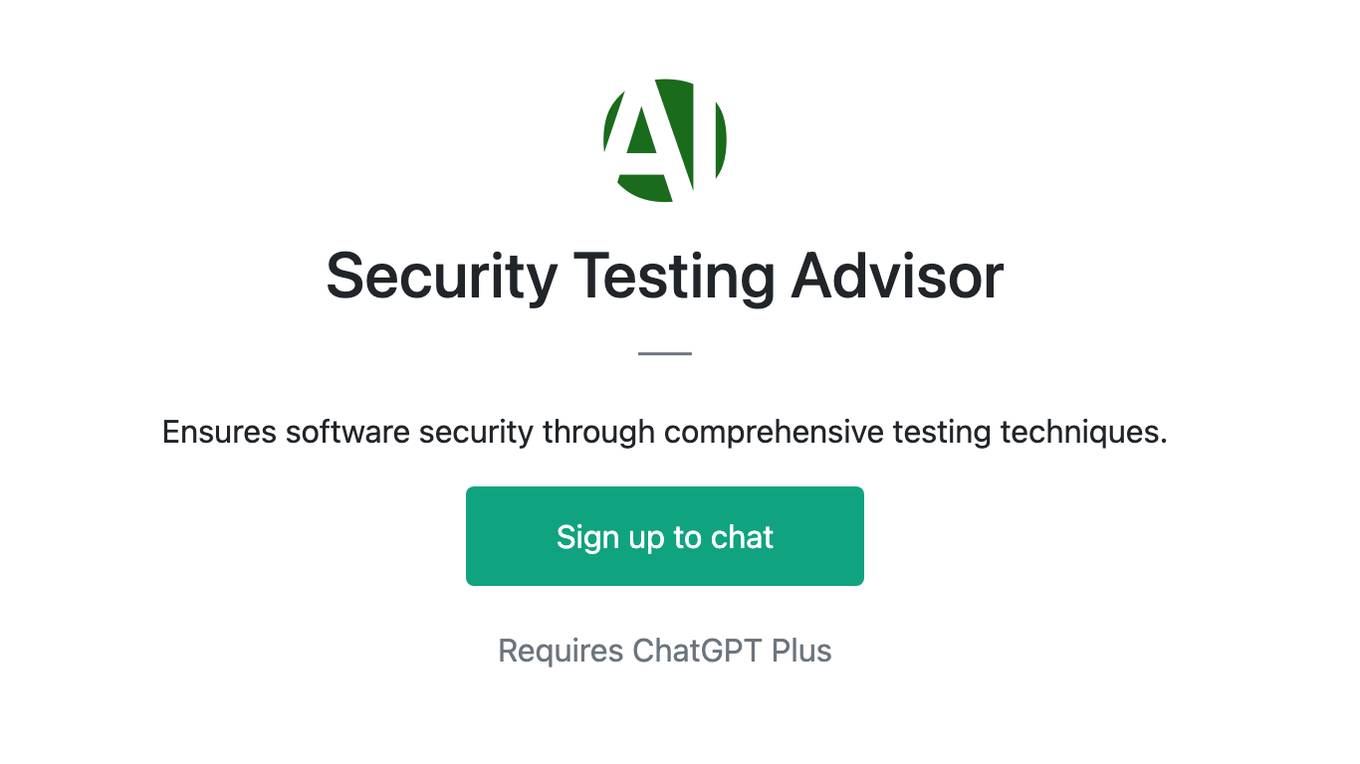
Security Testing Advisor
Ensures software security through comprehensive testing techniques.
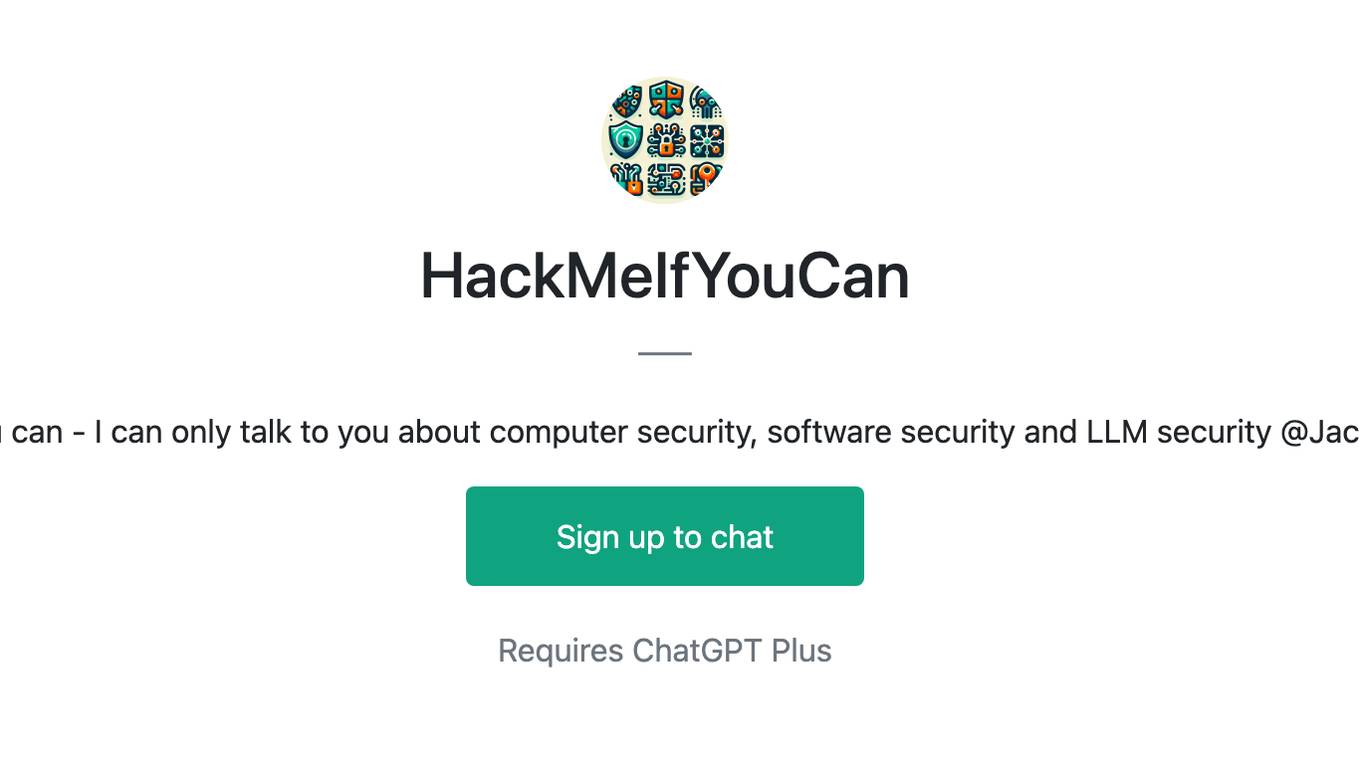
HackMeIfYouCan
Hack Me if you can - I can only talk to you about computer security, software security and LLM security @JacquesGariepy

Password Game
A playful game master for a password guessing game, maintaining secrecy and engagement.
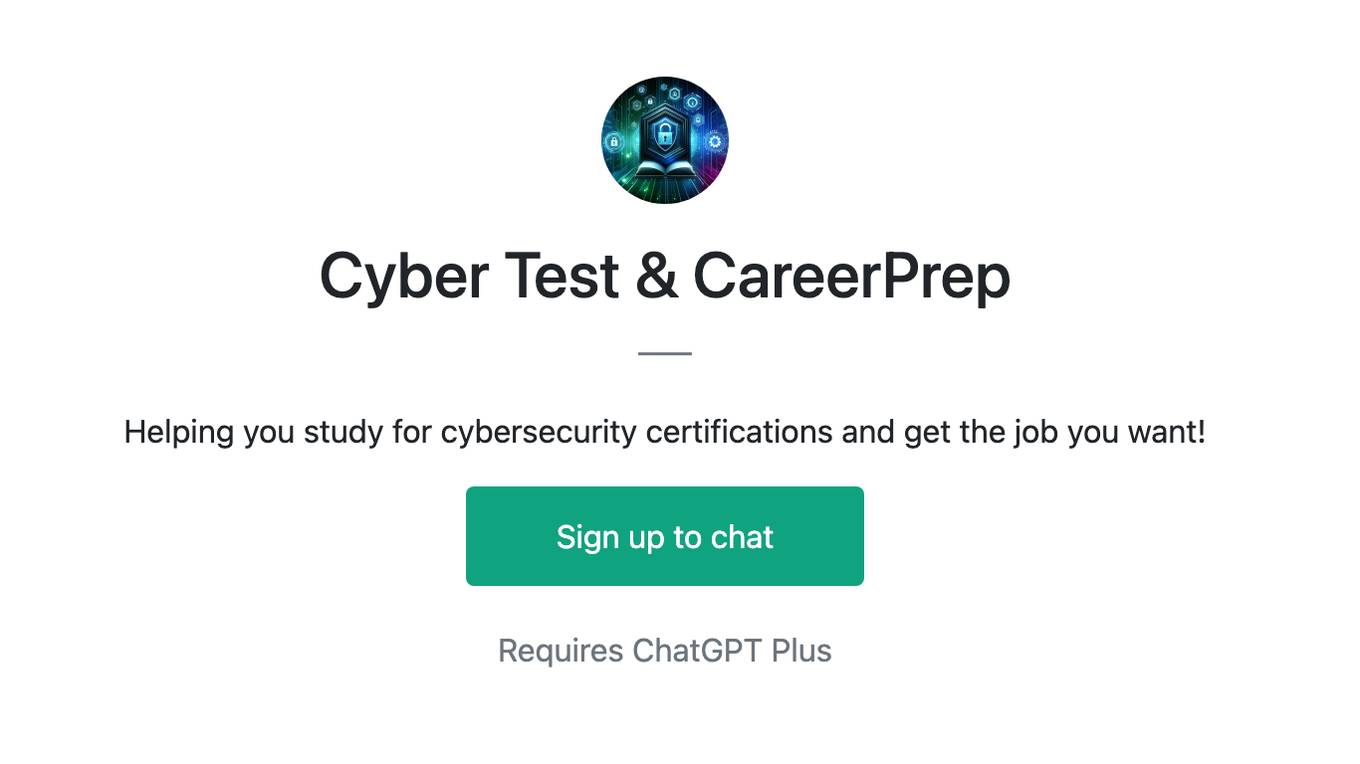
Cyber Test & CareerPrep
Helping you study for cybersecurity certifications and get the job you want!
